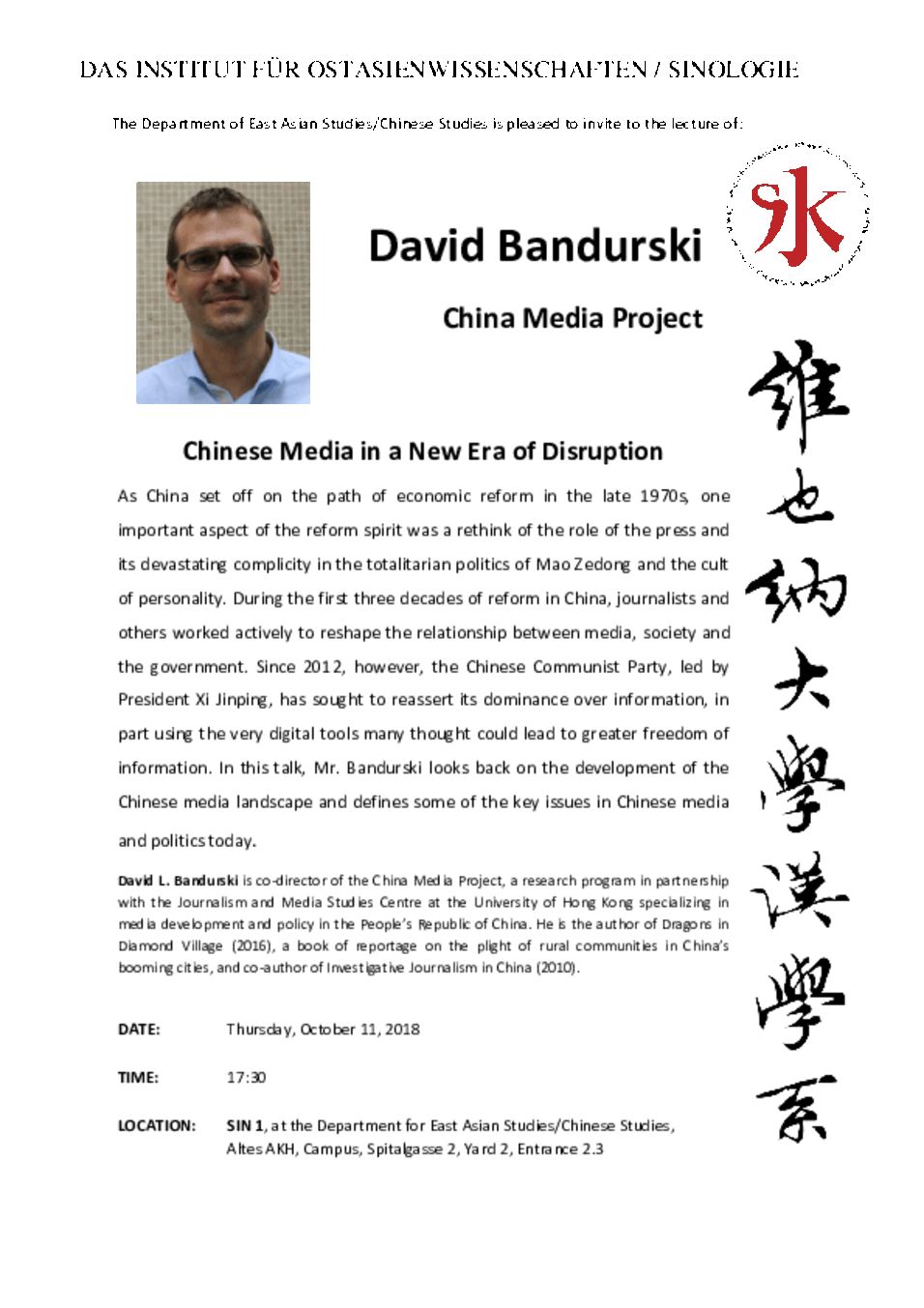Chinese Media in a New Era of Disruption
As China set off on the path of economic reform in the late 1970s, one important aspect of the reform spirit was a rethink of the role of the press and its devastating complicity in the totalitarian politics of Mao Zedong and the cult of personality. During the first three decades of reform in China, journalists and others worked actively to reshape the relationship between media, society and the government. Since 2012, however, the Chinese Communist Party, led by President Xi Jinping, has sought to reassert its dominance over information, in part using the very digital tools many thought could lead to greater freedom of information. In this talk, Mr. Bandurski looks back on the development of the Chinese media landscape and defines some of the key issues in Chinese media and politics today.
David L. Bandurski is co-director of the China Media Project, a research program in partnership with the Journalism and Media Studies Centre at the University of Hong Kong specializing in media development and policy in the People’s Republic of China. He is the author of Dragons in Diamond Village (2016), a book of reportage on the plight of rural communities in China’s booming cities, and co-author of Investigative Journalism in China (2010).

